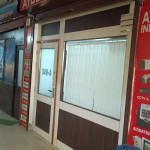When considering a security system supplier, the range of security systems they offer can be extensive, catering to various needs and preferences. Here’s an overview of the types of security systems you can typically expect from a security system supplier:
1. Intrusion Detection Systems (IDS)
Intrusion detection systems are designed to detect unauthorized entry into a building or area. These systems often include:
- Motion Sensors: Detect movement within a designated area.
- Glass Break Sensors: Trigger an alarm if a window is broken.
- Door and Window Sensors: Alert when doors or windows are opened unexpectedly.
- Alarm Systems: Audible alarms to deter intruders and alert occupants or nearby individuals.
2. Video Surveillance Systems (CCTV)
Closed-circuit television (CCTV) systems are crucial for monitoring and recording activities. These systems include:
- Analog and IP Cameras: Provide video footage of specific areas.
- Dome, Bullet, and PTZ Cameras: Different types of cameras for varied surveillance needs.
- NVRs and DVRs: Network Video Recorders and Digital Video Recorders for storing video footage.
- Remote Viewing: Access live or recorded video via mobile devices or computers.
3. Access Control Systems
Access control systems manage who can enter or exit specific areas within a facility. Components often include:
- Card Readers and Keypads: Control access via key cards or PIN codes.
- Biometric Scanners: Use fingerprints, facial recognition, or iris scans for secure access.
- Intercom Systems: Allow communication between entry points and security personnel.
- Electronic Locks: Secure doors that can be controlled electronically.
4. Fire and Life Safety Systems
These systems ensure the safety of occupants in the event of a fire or other emergencies. Key components are:
- Smoke Detectors and Heat Sensors: Detect early signs of fire.
- Fire Alarm Systems: Audible and visual alerts to warn occupants of a fire.
- Sprinkler Systems: Automatically activate to extinguish fires.
- Emergency Lighting: Guides occupants to exits during power outages or emergencies.
5. Environmental Monitoring Systems
Environmental monitoring systems protect against damage from environmental factors. Common systems include:
- Flood Sensors: Detect water leaks or flooding.
- Temperature and Humidity Sensors: Monitor critical conditions that could affect sensitive equipment or environments.
- Air Quality Sensors: Detect hazardous gases or pollutants.
6. Integrated Security Systems
Integrated security systems combine multiple types of security systems into a cohesive network. This can include:
- Building Management Systems (BMS): Integrate security with HVAC, lighting, and other building controls.
- Central Monitoring Services: Provide 24/7 monitoring of all security systems from a central location.
- Automation Systems: Automate responses to security events, such as locking doors or shutting down systems.
7. Cybersecurity Solutions
As physical and digital security increasingly overlap, suppliers may offer cybersecurity solutions, including:
- Network Security: Protects the network infrastructure from cyber threats.
- Data Encryption: Ensures data is encrypted during transmission and storage.
- Access Management: Controls digital access to sensitive information.
8. Personal Security Devices
For individual safety, security suppliers might offer personal security devices like:
- Panic Buttons: Portable devices that alert authorities or security personnel in emergencies.
- Wearable Cameras: Record interactions or incidents for personal safety.
9. Consultation and Custom Solutions
Many suppliers offer consultation services to design custom security systems tailored to specific needs. This can involve:
- Risk Assessments: Identify potential security threats and vulnerabilities.
- System Design and Installation: Tailor security solutions to the unique layout and requirements of a property.
- Maintenance and Support: Ongoing services to ensure systems function correctly and remain up-to-date.
Choosing the right security system supplier involves assessing their ability to provide comprehensive, reliable, and scalable security solutions that fit your specific requirements. Always consider suppliers with a proven track record, excellent customer service, and the ability to integrate various security components seamlessly.






Comments